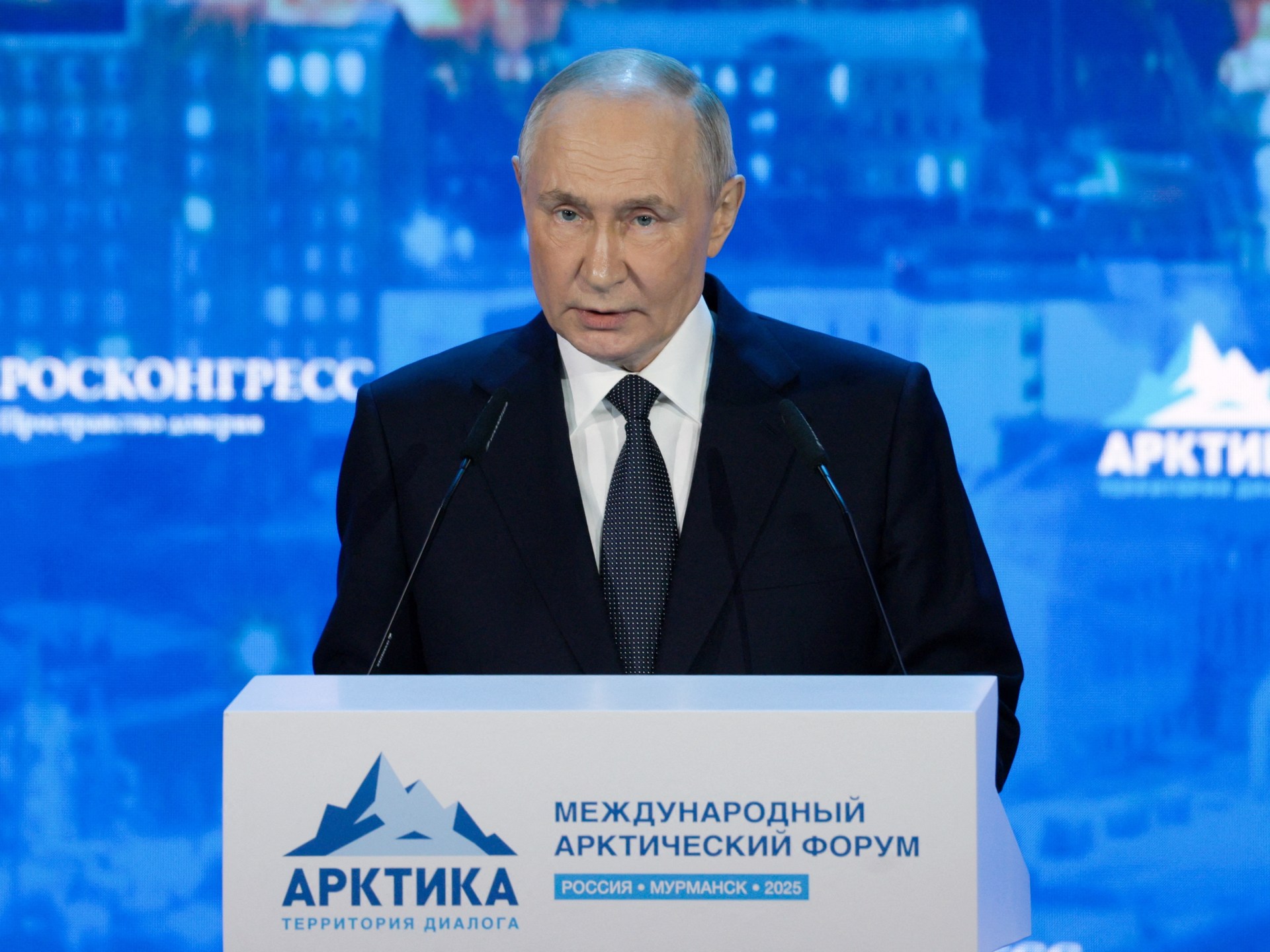Arctic Cooperation: Putin's Strategy Amidst Geopolitics
The Arctic, once a remote and largely unexplored region, is rapidly transforming into a geopolitical hotspot. Melting ice caps are opening up new shipping routes, revealing vast reserves of natural resources, and sparking intense competition among nations with Arctic territories. Russia, under President Vladimir Putin, has adopted a multifaceted strategy to solidify its influence in this increasingly important region, navigating complex geopolitical dynamics with calculated moves.
Russia's Arctic Ambitions: A Multi-pronged Approach
Putin's Arctic strategy isn't just about resource extraction; it's a comprehensive plan encompassing military build-up, infrastructure development, and strategic partnerships. This approach aims to establish Russia as the dominant power in the Arctic, leveraging its geographical advantage and historical presence.
Military Modernization and Northern Fleet Expansion
Russia has significantly invested in modernizing its Northern Fleet, deploying advanced weaponry and icebreakers to assert its control over the Arctic seas. This military presence serves as a deterrent to other nations and secures Russia's access to vital shipping lanes and resource fields. The modernization includes:
- Deployment of advanced submarines: Nuclear-powered submarines capable of carrying long-range cruise missiles enhance Russia's strategic reach and projection of power.
- Construction of new bases and infrastructure: Strengthened military bases and upgraded infrastructure throughout the Arctic ensure operational readiness and logistical support.
- Increased surveillance capabilities: Advanced radar systems and satellite monitoring provide constant vigilance over the region's airspace and maritime domain.
Infrastructure Development and Resource Exploitation
Beyond military might, Russia is heavily investing in infrastructure development to support resource extraction and bolster its economic influence. This includes:
- Expansion of ports and transportation networks: Improved port facilities and modernized railway lines facilitate the transportation of resources and support economic activity.
- Development of oil and gas fields: Russia is aggressively exploring and exploiting its vast reserves of oil and natural gas within the Arctic Circle, generating significant economic benefits.
- Investment in renewable energy: While fossil fuels remain a priority, Russia is also exploring renewable energy sources like wind and hydropower to diversify its energy portfolio and reduce its environmental footprint – a strategic move to improve its international image.
Strategic Partnerships and Diplomacy
While asserting its dominance, Russia isn't isolating itself. It actively engages in diplomatic initiatives, forging strategic partnerships with other Arctic nations, albeit with its own strategic goals in mind:
- Cooperation with other Arctic states: Russia participates in the Arctic Council, a forum for cooperation among Arctic nations, although its actions often contradict its stated commitment to collaboration.
- Bilateral agreements: Russia has signed numerous bilateral agreements with countries like China to strengthen economic and strategic ties related to Arctic development. This opens the door to significant investments in Arctic infrastructure and resource exploitation.
- Balancing cooperation and competition: Russia skillfully utilizes a strategy of both cooperation and competition, leveraging international forums while simultaneously pursuing its national interests.
Geopolitical Implications and Challenges
Russia's ambitious Arctic strategy presents significant geopolitical implications. The increased military presence and resource exploitation raise concerns among neighboring countries and the international community. Challenges include:
- Environmental concerns: The exploitation of Arctic resources poses significant environmental risks, impacting fragile ecosystems and contributing to climate change.
- Territorial disputes: Overlapping claims to Arctic territories create potential for conflict and necessitate international cooperation to resolve these issues.
- International pressure: The international community is increasingly scrutinizing Russia's activities in the Arctic, applying pressure to ensure responsible resource management and environmental protection.
Conclusion: A Calculated Gamble
Putin's Arctic strategy is a high-stakes gamble. While it secures Russia's access to vital resources and enhances its geopolitical influence, it also carries risks. The long-term success of this strategy hinges on balancing its ambitions with international cooperation and responsible environmental stewardship. The Arctic's future will significantly depend on how these competing interests play out in the years to come. Further developments in this dynamic region warrant close observation.
Keywords: Arctic Cooperation, Putin, Russia, Arctic Strategy, Geopolitics, Arctic Council, Northern Fleet, Resource Exploitation, Climate Change, Territorial Disputes, International Relations, Arctic Shipping, Energy Security.

